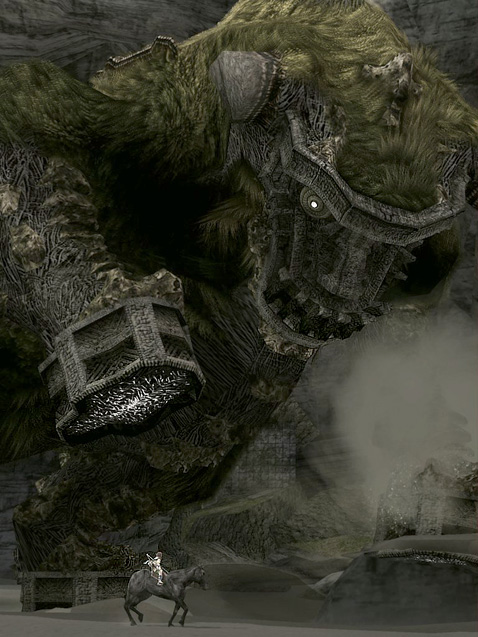Are Videogames a Form of Art?
One of the most interesting ongoing discussions right now speak of the quality of games as a valid form of art. Ever since movie critic master Roger Ebert said that “games can never be art”, arguments for both sides began appearing all over the net, but is either of these sides right? Without trying to side with either, here is our take on the subject, which to us is definitely worthy of more than a “yes/no” answer.
First things first: it’s important to note that except for some notable cases, videogames are the product of teamwork, and their model is regulated by the laws of the industry. It’s pretty uncommon to find an equivalent of a garage band, a “scene” or emerging plastic artist in gaming, despite some noble efforts (VVVVVV for PC is the first title that comes to mind). Gaming, art or not, is more of a business than any of the other arts, and this does have an effect on the over-all vision of the product.
Ebert was particularly harsh in his first declarations on the subject, mentioning how “There is a structural reason for [why videogames can’t be art] : Video games by their nature require player choices, which is the opposite of the strategy of serious film and literature, which requires authorial control”. Now, let’s be fair, the man is a respected authority on art issues, he knows about movies, what makes a media product good, and what is just cheesy or plainly bad. Still, the previous statement seems to hint that the man doesn’t understand that this is one of gaming’s biggest strengths. Players making choices shouldn’t influence whether something is or isn’t considered art, which according to our definition should be any piece that somehow conveys the intention/vision of an artist, and presents a unique view of a particular reality. The ability to choose can be used to enhance that vision, to force the viewer/player to ask himself questions, and that’s what makes the medium special. If this wasn’t the case, we’d just be watching movies, reading books or listening to music, anyways.
Us gamers and writers (the core audience and people behind this site, we’d like to imagine) should know better than anyone that not all games are the same. It’s not the same comparing Farmville, Bejewled, or your run of the mill phone game to Grand Theft Auto, Final Fantasy, Skyrim or Halo. We can agree with Ebert on a middle ground, at least: some video games are definitely not art. There’s nothing artsy about Mafia Wars or other games from social networks, for example. These games are meant to entertain only, and don’t try to show an artist’s vision, idea or anything. On the same hand, though, games aimed towards hardcore audiences, focused on multiplayer, killstreaks and headshots can’t be really thought as games that are providing a unique, artsy vision of the world. They’re just fun, and that’s their whole point.
Let it be noted, not every game needs to be art, and there’s nothing wrong with having fun. Not every game has to be “Citizen Kane”, but it’d be narrow-minded to assume every game is equivalent to “Dude, Where’s My Car?”. There are some great games out there which manage to tell a story, and make the player interact in a way which wouldn’t be possible in any other medium. A great example of this is the Deus Ex saga, where radical changes occur depending on the choices the player makes, and the ending is left entirely up to him/her, making the player reflect upon the consequences of the main character’s actions. On similar degrees, this is also accomplished in games like the Thief saga, Silent Hill (the first two titles in particular), or Elder Scrolls, which have stories that take full advantage of the format, and tell a story adjusted to the player/spectator. If that story is good, or not, or if anyone doesn’t like it, it’s an entirely different discussion, and more of a matter of opinion.
Another important point that Mr. Ebert missed is that videogames don’t really need to be a story-telling medium, or the story itself can be just an excuse to show a particular moment in a particular time, like a snapshot of a particular universe where aesthetic values or style prevail over the story telling itself. Probably the best example of this is Shadow of the Colossus for the PS2, a game where the player is set out loose in a world and sent to destroy 18 Colossi to save a girl’s life. While the story might not be much, there’s a lot of thought put into ambiance, aesthetics, and gameplay meant to enhance the experience adding a sense of urgency to everything the player does. Other good examples would be Metroid, Alan Wake, or the GTA series. Denying the artistic value of videogames where unique gameplay, or visual style are the priority would be like saying the movie “Sin City” can’t be considered art because the story is “too simplistic”. Style is definitely part of the over-all vision.
So, once we’ve gone over the strengths of the medium, are games art? Well, definitely not all of them. We could argue that most aren’t, and just try to be either just a form of entertainment, or a substitute for movies/anime/tv series where the player has to press “A” every once in a while to justify it being a game. But this is no reason to take credit away from the true gems out there, gaming is still relatively young and there’s a long road yet to walk, but the industry is already showing some good signs. Maybe the main problem is lumping the whole bunch of products under the denomination “videogames”, as if all of them were the same thing just because they’re electronic forms of entertainment. Seriously, what’s so similar when comparing Poker for Blackberry devices to Alan Wake to Battlefield to Pacman?













